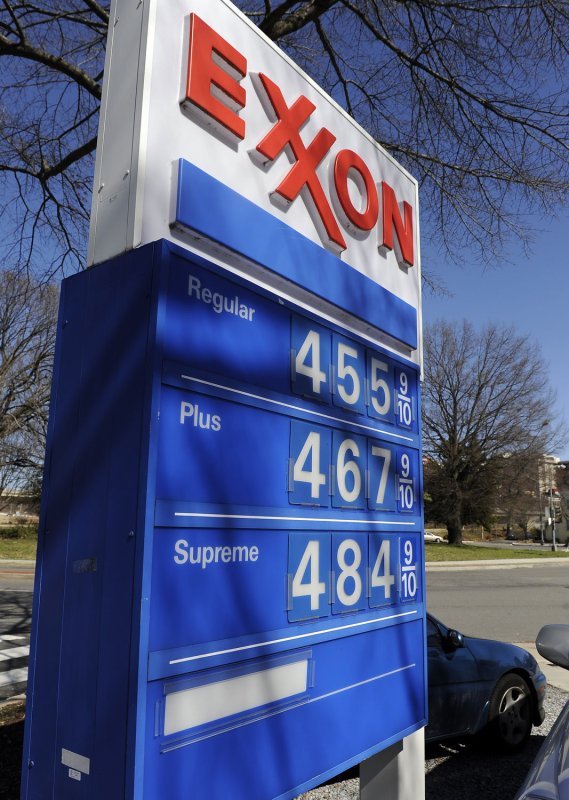A sign at an Exxon gas station in Northwest Washington boasts gas prices of $4.559 for regular and $4.849 for supreme on March 7, 2011. Unrest in Libya and other oil-producing countries has raised a barrel of oil over $100 causing the price of gasoline to shoot up over the last few weeks. UPI/Roger L. Wollenberg. |
License Photo
PARIS, April 1 (UPI) -- Though rising oil prices are contributing to inflation, world consumers are spending less economic energy on oil, an economist said from Paris.
Oil prices have risen substantially since September. Unrest in the Middle East contributed to further pressure as most of the oil from Libya is shut out of the market.
Fatih Birol, chief economist at the International Energy Agency, said that even though energy producers are gaining ground from high oil prices, the overall impact on the economy could be dramatic.
"The overall impact will depend largely on the extent of the price increase, its persistence, monetary policy response, and how producers spend their windfall revenues," he said in a statement.
The IEA adds that if oil prices stay about $100 per barrel for the year, members of the Organization of the Petroleum Exporting Countries will earn more than $1 trillion, an all-time record.
Nevertheless, Birol said the world, on average, is currently consuming half as much oil per unit of gross domestic product compared with 1971 levels.
He said this was primarily due to improvements in energy efficiency.
Most major oil importers, meanwhile, are spending now what they spent on oil in 2008 before the global economic meltdown.















